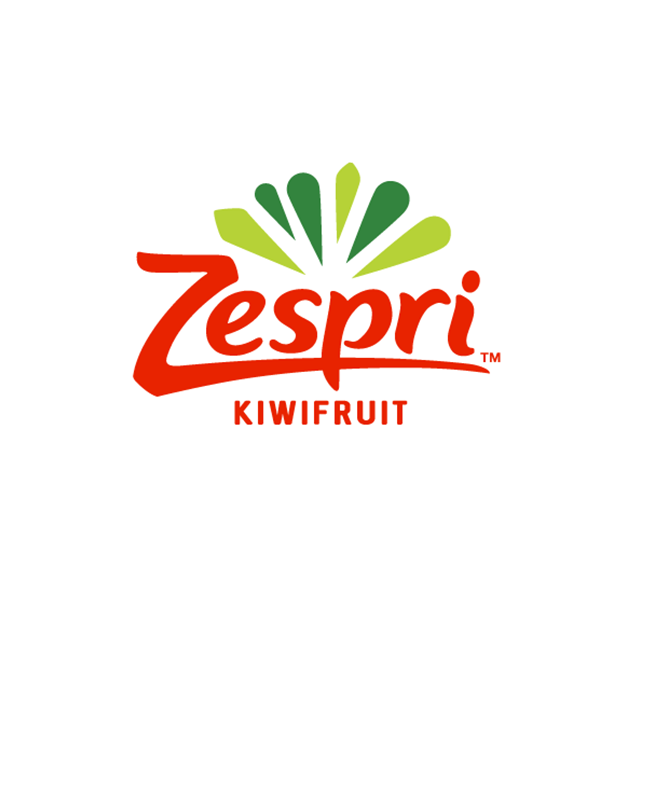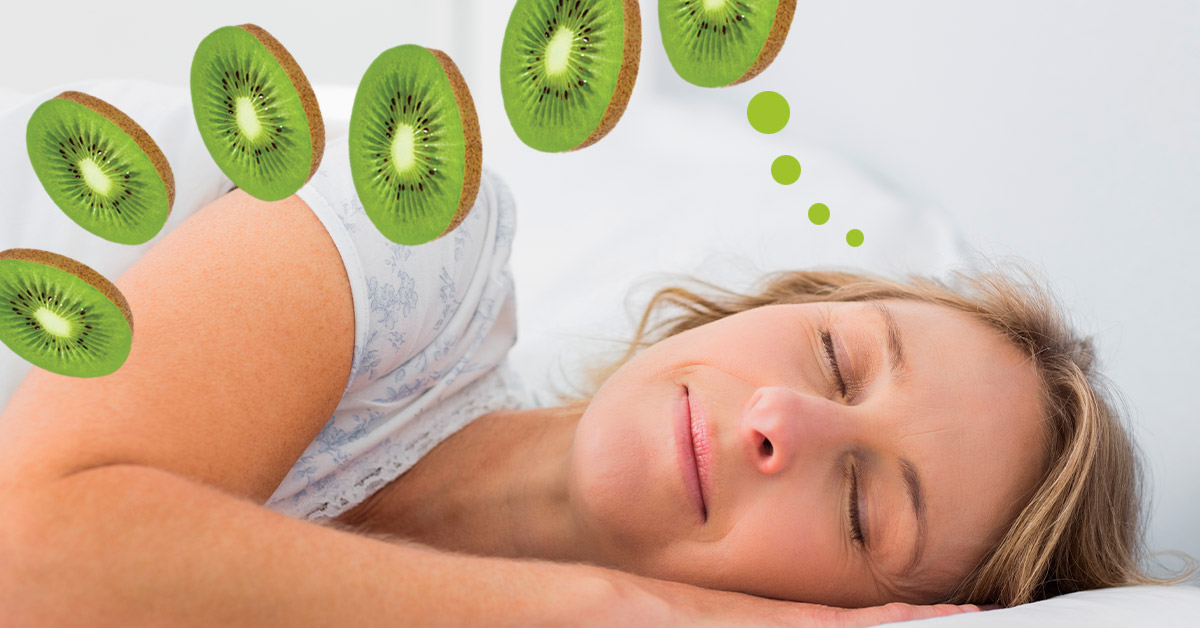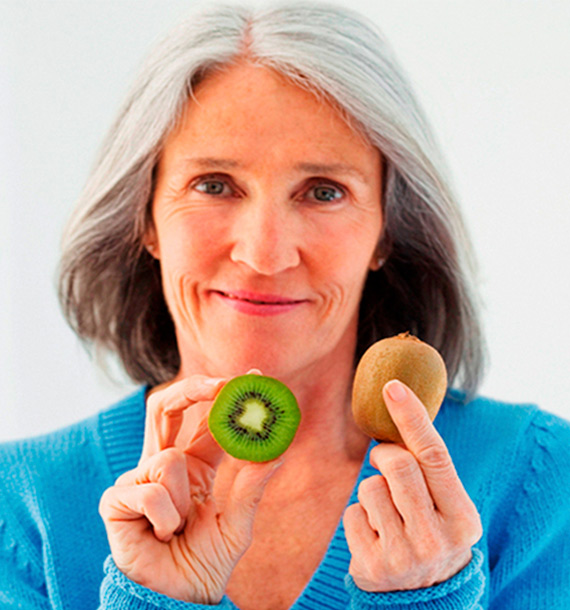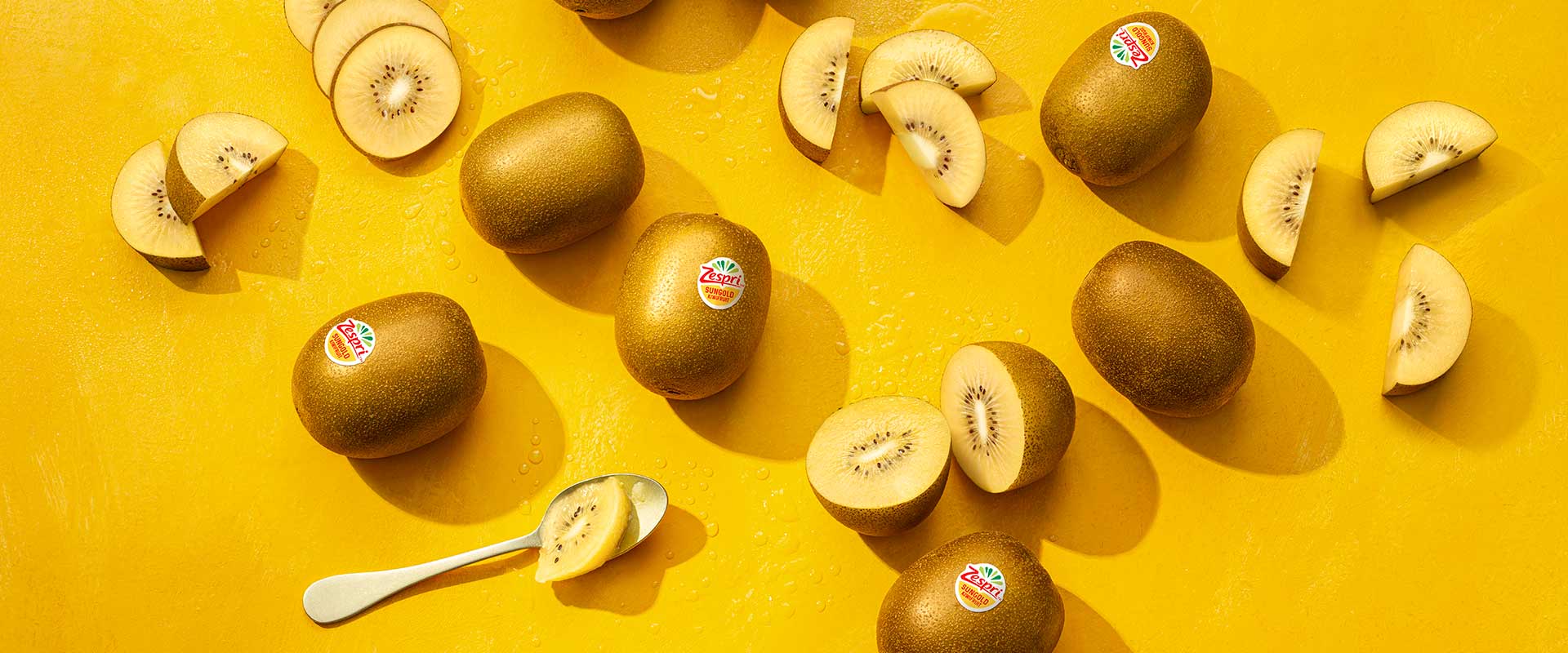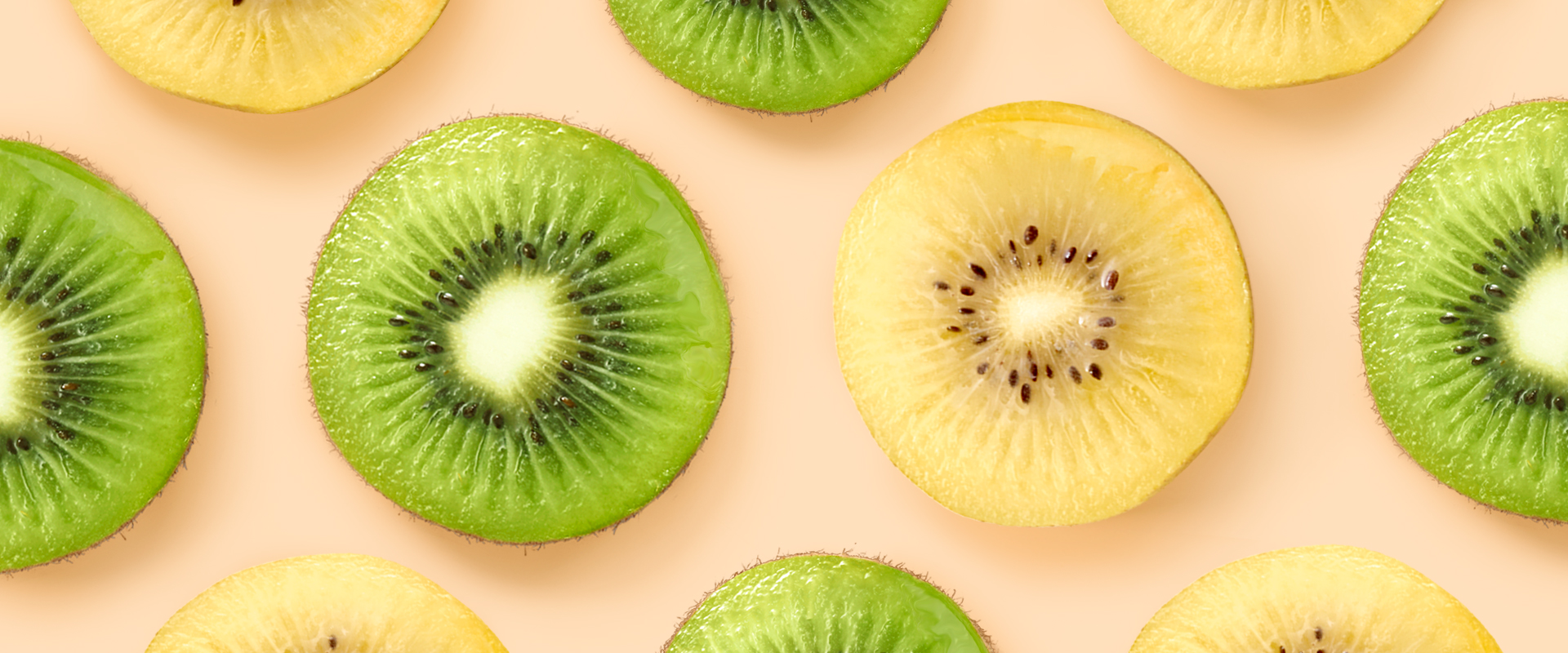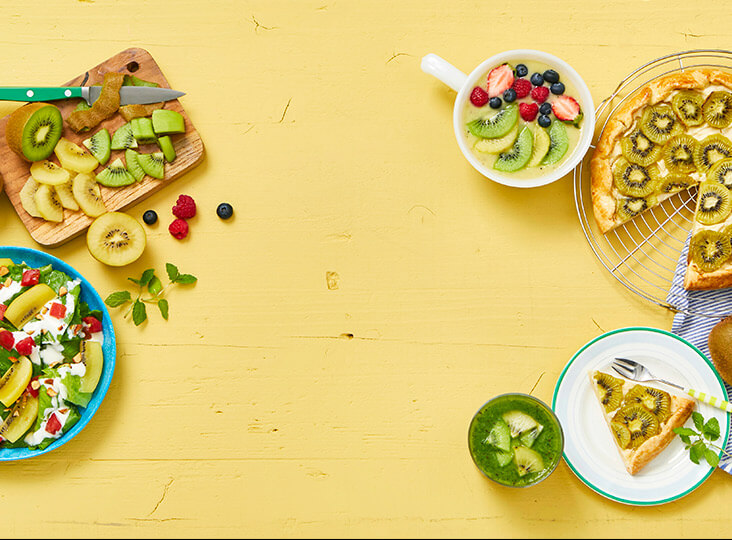How does nutrition affect sleep?
-
Zespri SunGold kiwifruit
-
Zespri Green kiwifruit
-
Digestive Health
When it comes to feeling healthy and happy during the day, a good night’s sleep can often make all the difference: we feel lighter, brighter, and better able to achieve. The truth is however, many of us struggle to give our bodies the rest that they need. Remedies for insomnia have existing throughout history (ever tried counting sheep?), but you may not have realised the impact the food you eat can have on your night-time habits. Keep reading for some useful insights and tips on nutrition and sleep.
It’s all in the rhythm1

Regular eating habits can lead to more regular sleep patterns, thanks to the effect of the hormone cortisol. Your body produces cortisol in cycles, and a good night’s sleep often depends on having normal levels of cortisol at bedtime. But how can the right nutrition help you attain this? Well, cortisol production is sensitive to the glycaemic index (GI) of the foods we eat. Nutritionists recommend eating a range of low GI foods during the day to try to keep cortisol levels balanced. Apart from having a low GI, Zespri Green kiwifruit contains serotonin, antioxidants, vitamin C, and carotenoids, which may improve the quality of sleep.
• The glycaemic index (GI) ranks foods according to how they affect blood sugar (glucose) levels.The glycaemic index (GI) ranks foods according to how they affect blood sugar (glucose) levels.
• Foods with a low GI value (55 or less) are more slowly digested, absorbed and metabolised, and cause a lower and slower rise in blood glucose.
• Zespri Green kiwifruit has a low GI (39), which means that the glucose is less rapidly taken up by the body and only slowly released into the bloodstream
It’s not just coffee that contains caffeine

Most people are aware of the connection between caffeine and poor sleep patterns, which is why they tend to avoid drinks such as coffee in the hours leading up to bedtime. The problem is however, not everyone is aware of the hidden caffeine in other foods and beverages such as tea, energy drinks and cocoa products. So next time you are tempted to mix up a cup of warming hot chocolate before bed, take a look at the nutritional label. A better alternative? Try a natural source of sleep-inducing melatonin, for example a refreshing glass of grape or cherry juice5.
Alcohol: a common culprit

A glass of wine at night may be relaxing and put us in the mood for sleep, but too much alcohol can actually disrupt natural sleep patterns. That’s because even though that glass of wine may help you fall asleep more quickly in the first place, the alcohol can actually wake you up at later stages during the night6. One good idea is to keep a sleep and alcohol diary. By tracking your drink consumption over a couple of weeks, you’ll have a better understanding of how alcohol affects you as an individual.
Nutrients can reduce tiredness and fatigue

Certain minerals and vitamins, such as folate and vitamin C, have been shown to contribute to the reduction of tiredness and fatigue7-8. Eating a balanced and varied diet is therefore one of the best ways to give your body the nutrients it needs for optimal health. Zespri Green kiwifruit is high in vitamin C and a source of folic acid9. In fact, one study has found that the consumption of two kiwifruit before bedtime for four weeks improved the quantity and quality of sleep for adults with sleep disorders10. So why not try out this delicious recipe for a peanut butter, banana and kiwifruit all-day breakfast burrito? Once you’ve had a bite, you’ll be dreaming of the next one!
References
- Harding, P.N. ‘Eat your way to better sleep’, American Nutrition Association Nutrition Digest (2005). Volume 38, No. 2. Available online: http://americannutritionassociation.org/newsletter/eat-your-way-better-sleep
- Monro JA. Kiwifruit, carbohydrate availability, and the glycemic response. Adv Food Nutr Res. 2013;68:257-71.
- Brand-Miller JC, Stockmann K, Atkinson F, Petocz P, Denyer G. Glycemic index, postprandial glycemia, and the shape of the curve in healthy subjects: Analysis of a database of more than 1,000 foods. Am J Clin Nutr. 2009;89:97-105.
- Boland M, Moughan PJ. Advances in food and nutrition research. Nutritional benefits of kiwifruit. Waltham, MA: Elsevier Inc; 2013. https://www.elsevier.com/books/nutritional-benefits-of-kiwifruit/boland/978-0-12-394294-4
- Meng X, Li Y, Li S, et al. Dietary Sources and Bioactivities of Melatonin.Nutrients. 2017;9(4):367. Published 2017 Apr 7. doi:10.3390/nu9040367
- Roehrs T., Roth T. Sleep, sleepiness, and alcohol use.Alcohol Res. Health.2001;25:101–109.
- European Commission. EU register on nutrition and health claims (2012).
- EU Commission. (2018) Regulation (EU) No 1169/2011. Retrieved July 10, 2018 from https://eur-lex.europa.eu/legal-content/EN/ALL/?uri=CELEX%3A32011R1169
- USDA national nutrient database for standard reference (release 28) 2015.
- Lin HH, Tsai PS, Fang SC, Liu JF. Effect of kiwifruit consumption on sleep quality in adults with sleep problems. Asia Pac J Clin Nutr 2011;20:169–74.
